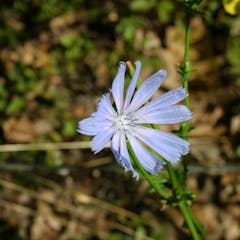
Articles on Species loss
Displaying 1 - 20 of 31 articles

A new film adaptation of Stephen King’s ‘Salem’s Lot’ swaps in an owl for the book’s haunting whip-poor-wills, showing how species loss is also tied into cultural loss.

Building ecological grief literacy in workplaces can help environmental professionals manage constant exposure to the many causes of their grieving.

Getting serious about protecting global biodiversity requires not just policy but a revolution in how we talk about, and with, our planet’s forests.

In reversing his decision on the Greenbelt, Doug Ford made no mention of ecology or biodiversity, the very things the Greenbelt was created to protect.

Invasive ants are a major threat to biodiversity, according to a study.

I have spent five years tracking down more than 10,000 accounts of wildlife by naturalists, travellers, historians and even poets, all written between 1529 and 1772

Research on Denmark’s hedgehogs offers insight into their cause of death – and how to help them.

New research from China shows how the loss of insects is destabilising food webs.

Negotiators hope to put humanity on a path to harmonious coexistence with nature by 2050.

Australia now has a target of protecting 30% of its land and sea area. But the challenges of conserving urban biodiversity illustrate why it’s a much more complex task than a simple target suggests.

Journals, museum collections and other historical sources can provide valuable data for modern ecological studies. But just because a source is old doesn’t make it useful.

Australia cannot get its environmental act together. We don’t even have the information we need to fix environmental problems. But there is a better way.

The world missed all 20 targets for stemming the tide of biodiversity loss. But there has been some progress over the last decade.

Pandas have done more to raise awareness of biodiversity loss than any other species. But they may not be good at stopping it themselves.

The Earth has experienced five periods of mass extinction. Scientists can’t quite be certain yet, but they’re fairly sure we’re now well into the sixth.

Given Africa’s projected population growth, management of its environment must be a global priority

New species are being discovered all the time, which only adds to the problem of knowing how many there are on the planet today. It also helps to know what we mean by species.

New Zealand is the last major landmass to be settled some 800 years ago. Since then, changes in land use have been extensive and catastrophic for the country’s unique flora and fauna.

Researchers are warning of a wipeout of huge numbers of insects. What’s the evidence behind this alarm?

Australian taxonomy resources number around 70 million specimens, valued at over AU$5 billion. That’s big science.